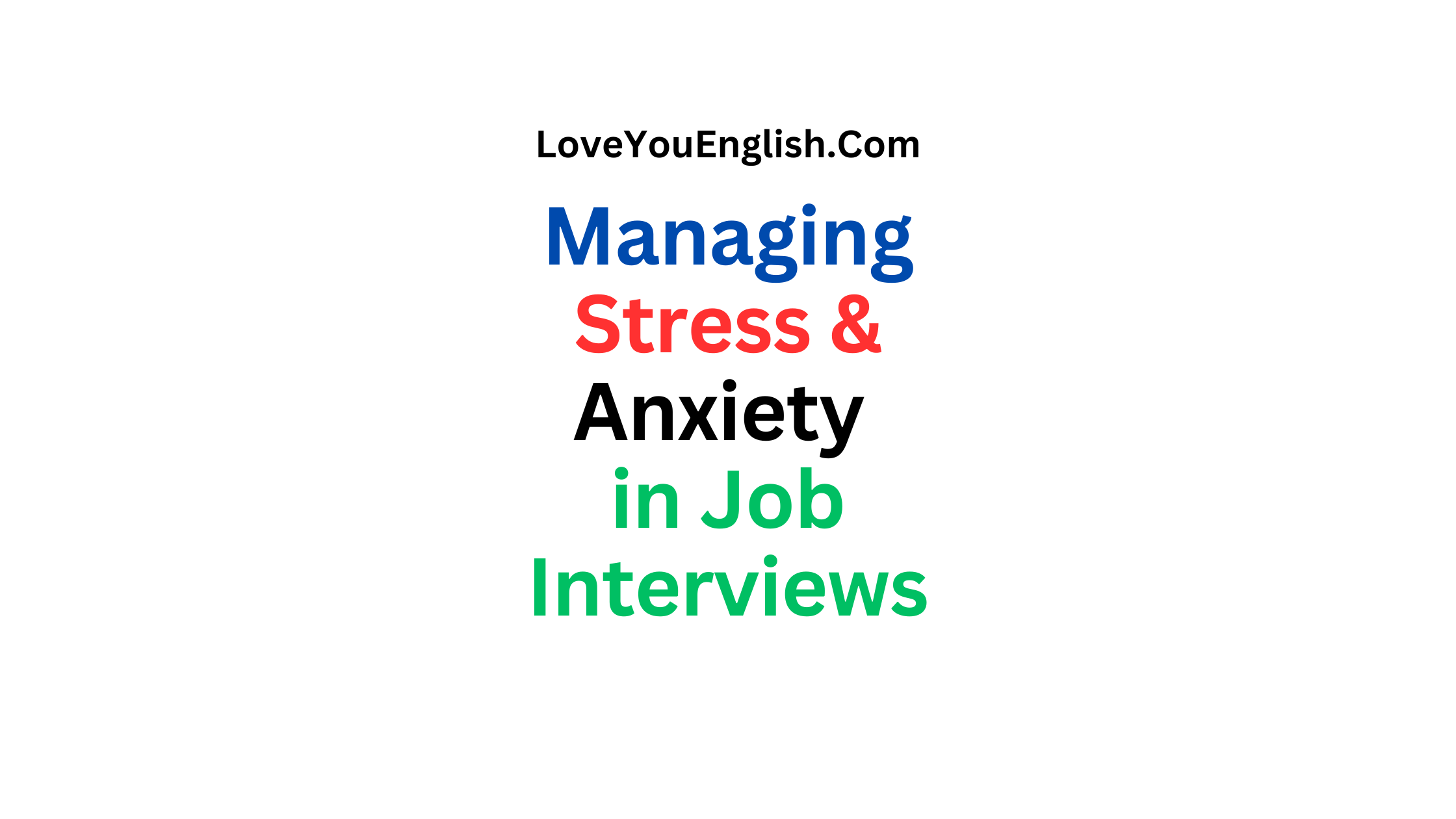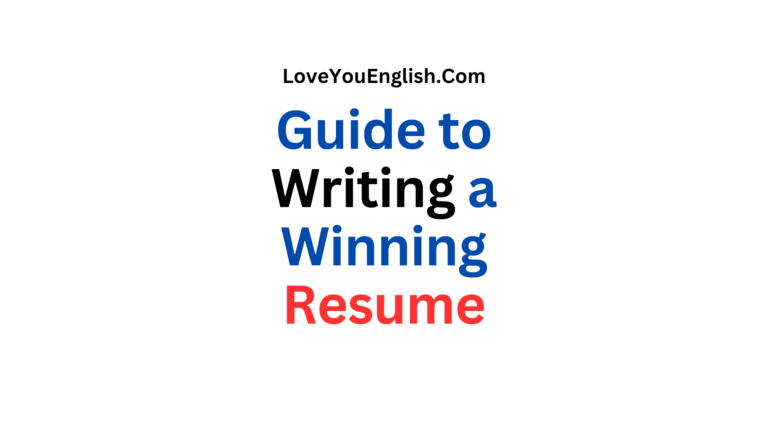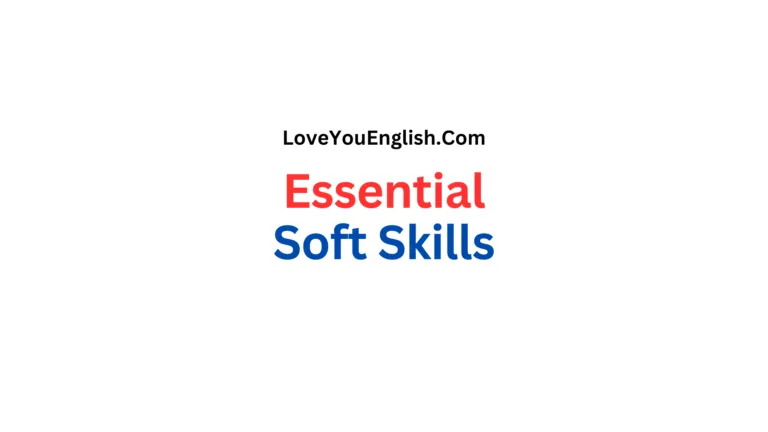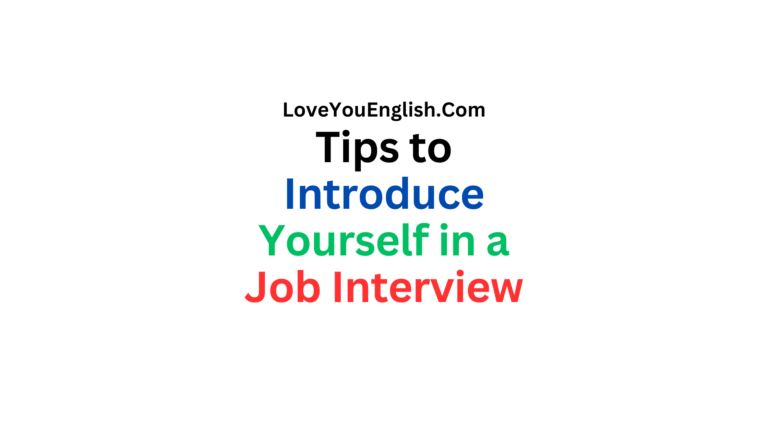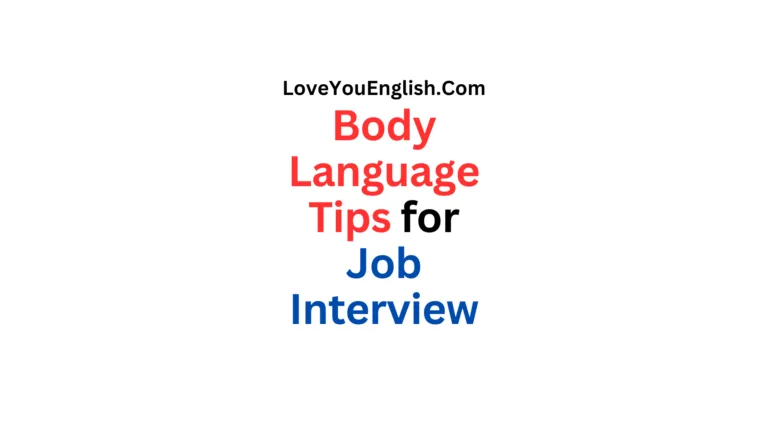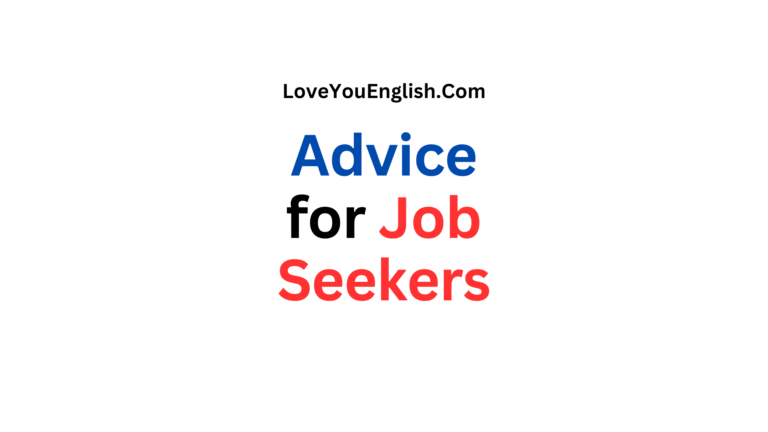Managing Stress & Anxiety in Job Interviews
Job interviews can be scary for many professionals, even those who are confident.
The pressure to impress, show off your skills, and get the job you want can cause anxiety and stress.
But if you have the right mindset and prepare well, you can learn to deal with interview anxiety and show your best self to employers.
This guide will explain why interview anxiety happens, how it affects you, and give you tips to help you stay calm before and during an interview.
Understanding Interview Anxiety
Interview anxiety is a common form of social anxiety that manifests when faced with the prospect of a job interview.
It’s characterized by feelings of nervousness, worry, and apprehension about the upcoming meeting with potential employers.
This anxiety can stem from various sources, including:
Fear of the unknown:
Not knowing exactly what questions will be asked or how the interview will unfold can be a significant source of stress.
Pressure to perform:
The desire to make a positive impression and outshine other candidates can create intense pressure.
Past negative experiences:
Previous unsuccessful interviews or rejections can contribute to anxiety about future interviews.
Self-doubt:
Questioning your own qualifications, skills, or ability to handle the position can increase anxiety levels.
Stakes involved:
The potential impact of the interview outcome on your career and financial stability can heighten stress.
Effects of Interview Anxiety
When left unchecked, interview anxiety can have several negative effects on your performance:
Physical symptoms:
Sweating, trembling, rapid heartbeat, and shortness of breath can make you feel uncomfortable and distracted.
Cognitive impairment:
Anxiety can interfere with your ability to think clearly, recall important information, and articulate your thoughts effectively.
Reduced confidence:
Nervousness can make you appear less confident, potentially impacting the interviewer’s perception of your capabilities.
Overcompensation:
Some individuals may talk too much or too fast when anxious, potentially coming across as scattered or unprofessional.
Missed opportunities:
Extreme anxiety might cause you to forget to mention key accomplishments or ask important questions about the role.
More cool topics:
- Managing Stress & Anxiety in Job Interviews
- Discussing Salary in the Interview Process
- How to Write an Interview Thank You Email [Tips + Examples]
- 15 Top Qualities Employers Look For in Job Candidates
Strategies to Calm Nerves Before an Interview
Thorough Preparation
One of the most effective ways to reduce interview anxiety is through comprehensive preparation.
The more prepared you feel, the more confident you’ll be.
Consider the following steps:
Research the company:
Learn about the organization’s history, mission, values, recent news, and industry position.
This knowledge will help you feel more comfortable discussing how you can contribute to their goals.
Review the job description:
Analyze the required skills and qualifications, preparing specific examples from your experience that demonstrate your fit for the role.
Practice common interview questions:
Rehearse your responses to frequently asked questions, focusing on clear and concise delivery.
Prepare your own questions:
Having thoughtful questions ready shows your genuine interest in the position and company.
Conduct mock interviews:
Ask a friend or family member to role-play as the interviewer, providing you with valuable practice and feedback.
Positive Visualization
Visualization is a powerful technique used by athletes, public speakers, and professionals to enhance performance and reduce anxiety.
To use this method:
Close your eyes and imagine yourself confidently walking into the interview room.
Visualize yourself answering questions calmly and articulately.
Picture the interviewer responding positively to your answers.
Imagine leaving the interview feeling satisfied with your performance.
Regularly practicing this visualization technique in the days leading up to your interview can help build confidence and reduce anxiety.
Mindfulness and Meditation
Incorporating mindfulness and meditation practices into your daily routine can significantly reduce overall anxiety levels and help you stay calm before an interview.
Try these techniques:
Deep breathing exercises:
Practice slow, deep breaths to activate your body’s relaxation response.
Progressive muscle relaxation:
Systematically tense and relax different muscle groups to release physical tension.
Guided meditation:
Use apps or online resources for guided meditations focused on reducing anxiety and building confidence.
Even just 5-10 minutes of mindfulness practice daily can make a noticeable difference in your stress levels.
Physical Exercise
Regular exercise is a proven stress-reducer and mood-booster.
In the days leading up to your interview:
Engage in moderate cardiovascular exercise, such as brisk walking, jogging, or cycling.
Practice yoga or stretching to release physical tension and promote relaxation.
On the day of the interview, a light workout or short walk can help clear your mind and reduce nervous energy.
Adequate Sleep and Nutrition
Your physical state significantly impacts your mental state.
To feel your best on interview day:
Maintain a consistent sleep schedule in the days leading up to the interview.
Aim for 7-9 hours of quality sleep the night before.
Eat a balanced, nutritious meal before the interview to stabilize your blood sugar and energy levels.
Avoid excessive caffeine, which can exacerbate anxiety symptoms.
Positive Self-Talk and Affirmations
The way you talk to yourself can greatly influence your confidence and anxiety levels.
Practice positive self-talk and affirmations:
Replace negative thoughts with positive, realistic ones.
Use affirmations like “I am well-prepared and qualified for this position” or “I have valuable skills and experiences to offer.”
Remind yourself of past successes and accomplishments.
Arrive Early and Use Calming Techniques
On the day of the interview:
- Plan to arrive at least 15-20 minutes early to allow time for unexpected delays.
- Use this extra time to find a quiet spot to collect your thoughts and practice calming techniques.
- Try deep breathing exercises or listen to calming music to center yourself.
Use Grounding Techniques
Grounding techniques can help you stay present and focused if anxiety starts to build.
Try these methods:
The 5-4-3-2-1 technique:
Identify 5 things you can see, 4 things you can touch, 3 things you can hear, 2 things you can smell, and 1 thing you can taste.
Focus on your surroundings:
Pay attention to the details of the room or environment you’re in.
Practice mindful awareness:
Notice the sensation of your feet on the ground or your body in the chair.
Reframe Your Perspective
Changing how you view the interview can significantly reduce anxiety:
See the interview as a conversation, not an interrogation.
Remember that the interview is also an opportunity for you to evaluate if the company and role are a good fit for you.
View it as a chance to share your experiences and learn about a potential opportunity, rather than a high-stakes test.
Use Anxiety-Reducing Body Language
Your body language can influence your emotional state.
Try these techniques:
Practice power posing before the interview (e.g., standing with your hands on your hips, shoulders back).
Maintain good posture during the interview to project and feel more confident.
Smile genuinely, as it can help you feel more positive and relaxed.
Strategies for Managing Anxiety During the Interview
Even with thorough preparation, you may still experience some anxiety during the interview.
Here are some strategies to manage these feelings in the moment:
Take a breath:
If you feel overwhelmed, pause briefly and take a deep breath before answering a question.
Use the STAR method:
For behavioral questions, use the Situation, Task, Action, Result format to structure your responses, giving you a clear framework to follow.
Ask for clarification:
If you’re unsure about a question, it’s okay to ask for clarification.
This gives you time to collect your thoughts and ensures you’re addressing the interviewer’s query accurately.
Stay hydrated:
Keep a glass of water nearby and take small sips if you need a moment to compose yourself.
Focus on your strengths:
Remind yourself of your qualifications and the value you can bring to the role.
Be authentic:
Instead of trying to be who you think the interviewer wants, focus on being your genuine self.
This can reduce the pressure to “perform” and allow you to connect more naturally.
Use positive self-talk:
Silently encourage yourself throughout the interview with phrases like “I’ve got this” or “I’m doing well.”
Practice active listening:
Focusing intently on the interviewer’s words can help distract you from anxious thoughts and ensure you’re responding appropriately.
Remember it’s normal:
Acknowledge that feeling some nervousness is normal and even expected in an interview situation.
Use nervous energy positively:
Channel your nervous energy into enthusiasm for the role and company.
Post-Interview Self-Care
After the interview, it’s important to take care of yourself:
Reward yourself:
Treat yourself to something enjoyable, regardless of how you think the interview went.
Reflect objectively:
Review what went well and areas for improvement without being overly critical.
Practice self-compassion:
Be kind to yourself, recognizing that you did your best under pressure.
Release tension:
Engage in activities that help you relax, such as exercise, spending time in nature, or practicing a hobby.
Follow up:
Send a thank-you note to the interviewer, which can provide closure and reinforce your interest in the position.
Long-Term Strategies for Managing Interview Anxiety
While the strategies mentioned above can help manage anxiety for a specific interview, consider these long-term approaches to build overall confidence and reduce anxiety in professional situations:
Seek professional help:
If interview anxiety is severely impacting your career progress, consider working with a therapist or career coach who specializes in anxiety management.
Join public speaking groups:
Organizations like Toastmasters can help you become more comfortable speaking in front of others and thinking on your feet.
Expand your comfort zone:
Regularly put yourself in new or challenging situations to build resilience and confidence.
Develop a growth mindset:
View each interview as a learning opportunity, regardless of the outcome.
Build a support network:
Surround yourself with supportive friends, family, or mentors who can offer encouragement and advice.
Continuously update your skills:
Staying current in your field can boost your confidence in your professional abilities.
Practice self-reflection:
Regularly assess your career goals, strengths, and areas for improvement to maintain a clear sense of direction.
Final Thoughts:
Feeling nervous before an interview is totally normal, but it doesn’t have to stop you from reaching your career goals.
By figuring out what makes you anxious and using different ways to prepare and relax, you can handle your nerves better.
Remember, a little bit of nervousness can actually help you stay focused and alert during the interview.
Think of each interview as a chance to learn and grow. With practice and not giving up, you can get better at interviews and feel more confident.
When you show your true self and are ready, you have a better chance of leaving a good impression and finding a job that fits your skills and goals.
In the end, overcoming interview anxiety is a journey of getting better at being yourself, not just getting a job.
The confidence and self-awareness you gain will help you in your career, giving you the strength to face new challenges and opportunities with confidence.

